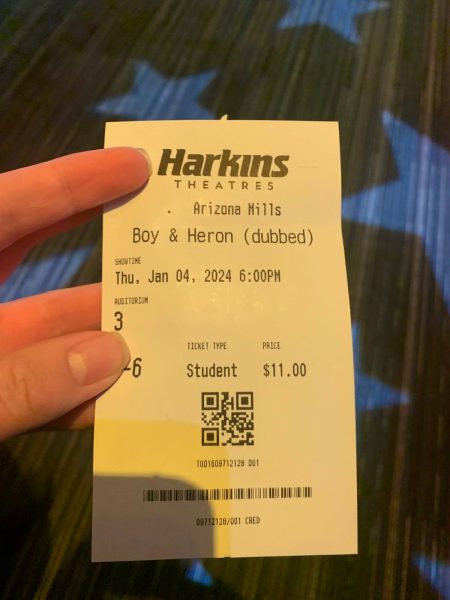Isle Of The Dogs Offers a New Dystopian World
April 11, 2018
Stop motion film Isle of the Dogs was set for a wide release on April 6, 2018. The film was directed and written by Wes Anderson with production by Indian Paintbrush and Anderson’s own company, American Empirical Pictures.
Set in a dystopian world in future Japan, the animated film follows a young boy, Atari Kobayashi (Koyu Rankin) in search of his beloved dog, Spots, after the outbreak of a flu virus forces the entire species to be banished to an island.
The plot further centers around Atari and his endeavors with other dogs on the island as well as
The film had a wide range of people as cast ensemble some of which included Bryan Cranston as Chief, Edward Norton as Rex, Bob Balaban as King, Bill Murray as Boss, Akira Ito as Professor Watanabe, Scarlett Johansson as Nutmeg, Harvey Keitel as Gondo, Yoko Ono as Assistant Scientist Yoko Ono, Ken Watanabe as Head Surgeon, and Liev Schreiber as Spots.
Overall, the film received positive acclaim from critics who enjoyed the animation, storyline, and humor. As critic David Ehlrlich from IndieWire claims, “The worse things get, the more fantastical Anderson’s films become; the more fantastical Anderson’s films become, the better their style articulates his underlying sincerity. The staggeringly well-crafted Isle of Dogs is nothing if not Anderson’s most imaginative film to date.
Dylan Baskett (10), who has watched the movie, claims, “I enjoyed the movie. The animation was great. It is comparable to Kubo and the Two Strings.”
However, other critics accused the film of cultural appropriation of Japanese society. The Japanese characters in the movie are heard speaking their native language and Anderson did not always use subtitles. An interpreter character voiced by Frances McDormand was also used for translation purposes.
As Los Angeles Times critic Justin Chang argues, “The dogs, for their part, all speak clear American English, which is ridiculous, charming and a little revealing; all these coy linguistic layers amount to their own form of marginalization, effectively reducing the hapless, unsuspecting people of Megasaki to foreigners in their own city.”
In response Brandy Hwang (12) states, “I really liked the movie. People need to understand that movies do this and this movie is not the only one that has mocked a culture. I believe it had no [ill] intentions.”
Nonetheless, the film has had overall success, with Anderson already receiving the Silver Bear Award for Best Director. Make sure to catch the film at your local theater.











